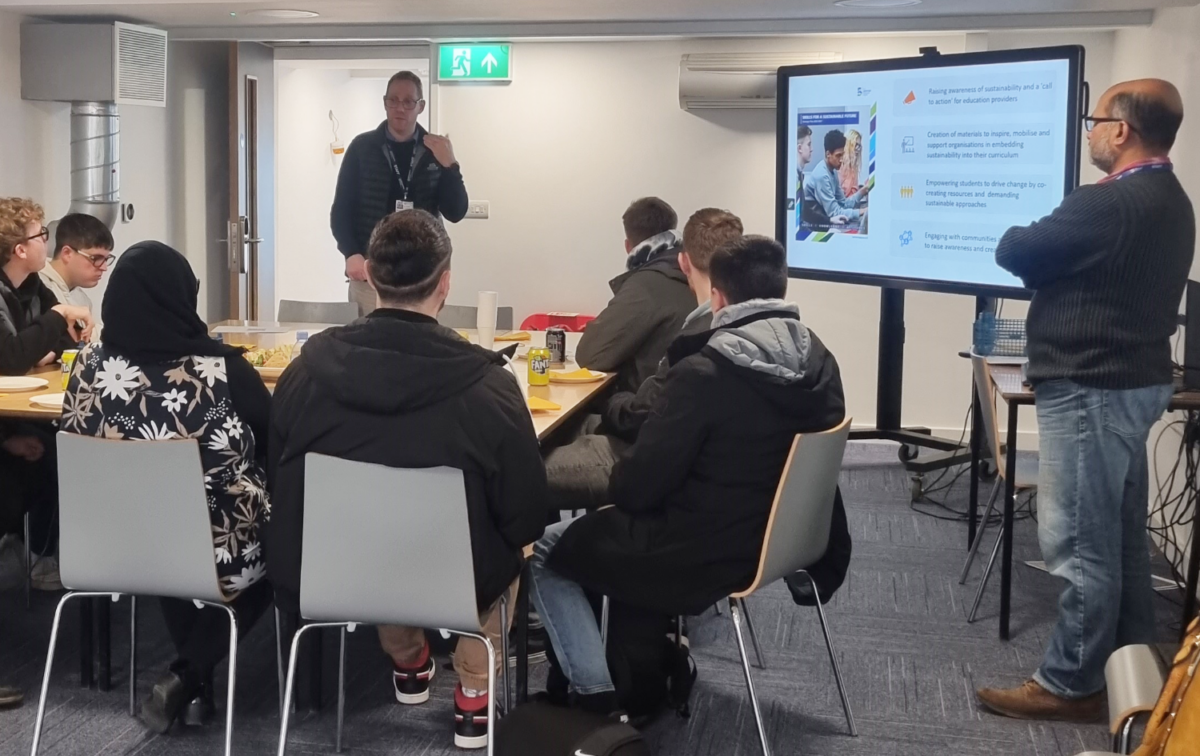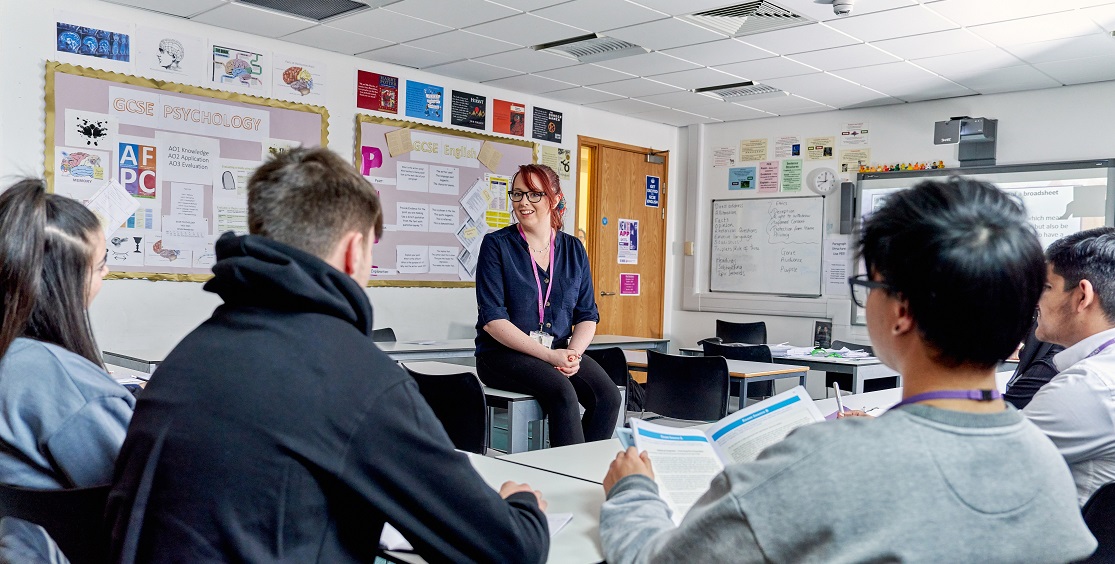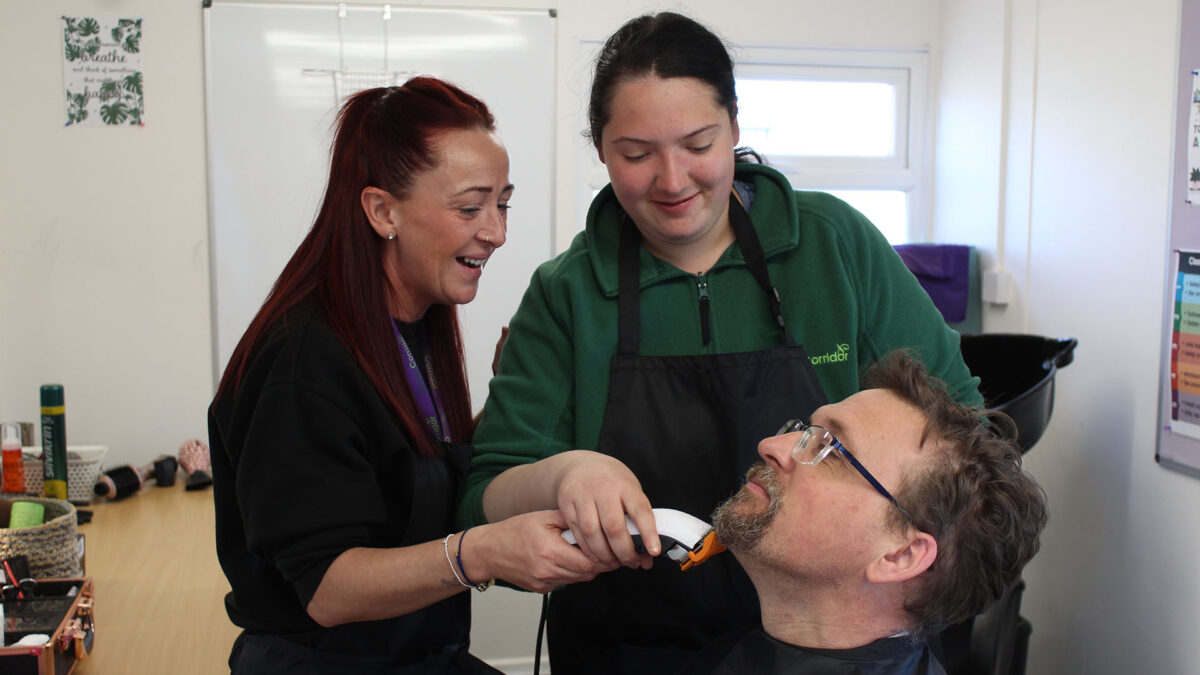Let’s Bring The Colour For World Autism Day

Mark Dawe, CEO of The Skills Network, reflects on the way the education sector and wider society can help make a practical difference for people living with autism this World Autism Day.
Today, Tuesday 2nd April, is World Autism Day. This is a time when inside the education sector and across the country we celebrate the diversity, challenges and strengths of autistic people worldwide – putting their story and life experiences to the forefront.
As the biggest online education and skills provider in the UK, we know firsthand the difference a better understanding of autism can make not only for people living with autism, but also to those close to them.
Our Government funded Understanding Autism courses help thousands of people every year to gain greater insight on this important topic at no cost to themselves, whilst also offering practical support to those exploring their own experiences out in local communities. It’s a great privilege to be on that journey with people and be a key part in helping them navigate what can often be tricky subjects for families, friends, employers and everyone else.
That’s the interesting thing, we have all sorts of people doing the course, with a variety of different motivations – parents, grandparents, carers, teachers, early years educators, care workers, people with autistic friends, managers who have autistic staff – it is great that we are able to offer something for free which is suitable for a whole range of circumstances.
It is really good news that over the last few years there has been an increasing awareness of autism. At the moment there are around 700,000 autistic adults and children in the UK, but there are over 150,000 further people waiting for an autism assessment. It’s a massively important issue and it is right that those of us who work in education play our part to help bring these matters into greater focus with learners, employers and the general public.
Autism is a lifelong developmental disability which can affect how people communicate and interact with the outside world on several levels. Recent statistics gathered by The National Autistic Society indicate that 70% of people with autism in the UK will also experience mental health problems, so there is a clear need for serious steps to be made in tackling these issues and ensuring people with autism are not isolated from our wider society – as well as having access to the support they need.
You would hope that given around 1 in 100 people in the UK are autistic, that as a country we would already be making great strides in how this issue is approached, but sadly autistic people still often face discrimination and barriers across all sectors of society – not just in education, but also in the health and social care systems and in the workplace, and everywhere in-between.
For example, did you know that only 29% of autistic people in the UK are in any form of employment? That is a clear sign that there is still much work to be done to ensure people with autism can fully access the support they need to achieve their own goals. We should be empowering people to meet their aspirations, not continuing with structures which often hold them back.
Through developing our own bespoke courses, we know that it is crucial that autistic people, and their families and carers, can access tailored information, guidance and support to help overcome the barriers they face, as well as access opportunities like never before.
Embracing aspiration is a big part of that challenge. Research shows that only 26% of autistic children feel happy at school – having happy and engaged learners is a must for any classroom to succeed, and the changes we make need to start at the earliest possible opportunity if children with autism are going to be enabled to thrive to reach their potential.
Our Understanding Autism course helps give learners an understanding of autism and the principles and practicalities of supporting autistic individuals, whilst studying the importance of a person-centred approach. No two people with autism will be the same and it is important that we always look to offer bespoke tailored solutions, rather than a one-size-fits-all broad-brush methodology.
One of the people we empowered through this course was Emma, who works in a special needs school. She has 240 children aged between 3 and 16 – 58% of whom have a primary area of SEND in communication and interaction, with a high proportion of them having an ASC, ASD or ADHD diagnosis. Our course allowed her to upskill herself and refresh her knowledge of autism during her summer holidays, outside of the pressures of term time.
Emma told us that she found the process from start to finish to be very straight forward and that the platform was easy to use, with very helpful feedback. However what really helped her grow her knowledge was the signposting to extra reading materials at the end of each completed unit that reinforced that learning and could put it into practice – and that the learning resources were of a high quality, with the video interviews with parents and young people living with autism bringing these unique perspectives to life.
To hear our course has had a really positive impact on Emma’s work and professional life, strengthening her knowledge and understanding of autism – helping her more deeply understand the functions of certain pupil’s behaviours – has been really encouraging for us as we deliver this course to others in the sector.
The influence that positive communication methods can have, combined with greater understanding of how autistic individuals, can really help people with autism live healthy and fulfilled lives and help shape the way education professionals approach children with challenging behaviours.
The theme for Autism Awareness Day this year is all about embracing colour. So whether you are wearing bright clothes to work, setting out on a 5k Spectrum Colour Walk or finding other creative ways to get involved, let’s all work together to create a more inclusive society that works for everyone living with autism.
By Mark Dawe, CEO of The Skills Network











Responses